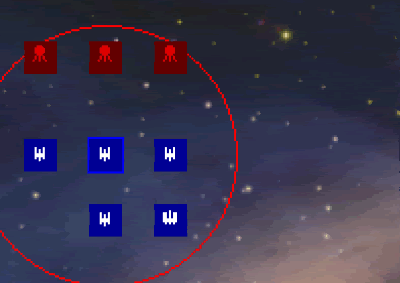
With distractions aplenty, I haven't worked on TBTBSG (which now has a tentative title) for a good couple of weeks. But I have been thinking about it in the meantime – in particular about the plot/mission structure. One key element has changed. Originally I was intending to have 'you', the player, as the main character, but I've been thinking long and hard about that and different approaches to the player's involvement in the game. At this point I could probably write a lengthy essay on the matter, but there are plenty of other people more qualified than me to do that, so I'll try to keep this brief.
Given that user participation is what sets computer games apart from most other media (with the slight exception of pantomimes, I guess), I think it's natural to be tempted by the whole Only You Can Save Mankind idea (to borrow a phrase from Terry Pratchett), but it actually has a lot of drawbacks to it in any game with significant story elements or character interaction. Foremost is that, ultimately, you will have to make decisions for the player, which may not be the ones that they would make.
Thinking about this, I was also surprised to reach a new understanding of how some of my favourite games have tackled this problem. Take the Half Life series, for example: first person shooters that put you in the HEV suit of perpetually silent Gordon Freeman. If he's silent so that I think he's me, I've often wondered, why is he Gordon Freeman, bearded white male physicist? His likeness doesn't appear anywhere in the game, so why not leave him a complete blank? But even if he wasn't defined as a bearded white male, he'd still be defined as a person who does a lot of other things – a person who takes orders from random scientists, who likes shooting people and hitting things with a crowbar, who generally comes up with specific solutions to specific problems (e.g. jump over that ramp in a car rather than find an alternate route). That's not necessarily who the player is. By keeping Gordon silent, I don't think the designers of the Half Life games are trying to make you believe that Gordon Freeman is you, but instead to remove the barriers preventing you from thinking of yourself as Gordon Freeman.
I think that when it comes to how much bang you get for your buck (or how powerful a storyline you get for the effort you put into coding the game), it's much more efficient to make the player identify with a strong main character than to try and put the player into your game. This character can play by your rules, whereas, well, who is the player? How can you be certain you won't make any assumptions that they will find frustrating (or offensive)?
That's not to say that you can't do story-driven games where the player is allowed to express their personality. Many interactive fiction games feature an 'everyman/woman' protagonist, who must solve practical problems to progress through the game, but is allowed to form their own moral and emotional reaction to events. Probably the best examples of going the whole slog of allowing the player to do whatever they want (with very few limitations) are world-building strategy games like Sid Meier's Alpha Centauri, in which you can choose to create a repressive police state or a commune of tree-hugging hippies as you prefer. It's telling that this works well as a device for encouraging the player to be themselves, because whenever I start the game trying to create a police state, my conscience always chips away at me until my repressed drones are running free and barefoot in ecologically friendly gardens.
One last thing I want to mention: Super Robot Wars 3, which I may have mentioned has inspired the basic gameplay mechanics behind TBTBSG, has one of the weirdest approaches to player involvement that I've seen - in that it systematically effaces the player. First up, the game has a large cast of characters with no specific lead to identify with. And then, although it allows the player to make choices about how to progress through a branching storyline, as soon as the player has made that choice, the game then pretends that it was actually a decision made by one of the characters. Hey, I'm right here telling you all what to do! Don't ignore me! >:-\
Oops, that was a lot longer than I wanted it to be! The only thing you really need to know is that Mercury is now the game's main character. We now return to your regularly scheduled broadcast.
2 comments:
Seems like the games are realized dreams ("which character will I be?")
It's as much about 'identifying' as 'actually being'.
And there you go about police state dreams... no wonder I was having nightmares. ;-)
Police state games, I mean.
Post a Comment